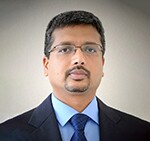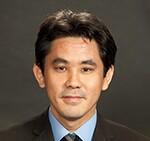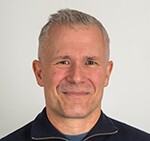With the A Peer Apart award, SPE recognizes those dedicated individuals involved in the review of 100 or more papers for SPE’s peer-reviewed journals.
Peer review is an essential part of scientific publishing and helps to ensure the information contained in a journal is well supported and clearly articulated. Volunteers who commit their time to reviewing papers make substantial contributions to the technical excellence of our industry’s literature. Each year, SPE typically has more than 1,400 individual reviewers submitting more than 3,500 reviews for SPE’s various journals. These committed volunteers come from a variety of backgrounds, including academia, service and operator companies, and consultancies from around the world.
Peer review is a demanding and time-consuming task. Over time, the individuals receiving this honor have volunteered hundreds of hours to the Society, making SPE journals a valuable resource to authors and the industry. It is an outstanding accomplishment for those who reach the milestone of reviewing 100 papers.
This year, 13 individuals join this elite group, bringing the total membership of A Peer Apart honorees to 211 dedicated members.
Please join us in congratulating the 2023 honorees.
![_2023 APeerApart_SPE News[2]](https://assets.spe.org/dims4/default/291eb12/2147483647/strip/true/crop/150x141+0+0/resize/150x141!/quality/90/?url=http%3A%2F%2Fspe-brightspot.s3.us-east-2.amazonaws.com%2F01%2F90%2F9660b2f54bffb9bfcf494939e4af%2Fal-shalabi-2023-cropped.jpg)
Emad Al Shalabi is an associate professor of petroleum engineering at Khalifa University of Science and Technology in Abu Dhabi. His research interests are focused on enhanced oil recovery (EOR), geological gas storage, and reservoir simulation and modeling. He has coauthored more than 140 scientific papers. He is an associate editor for both SPE Journal and Elsevier’s Geoenergy Science and Engineering Journal and serves as a reviewer for several international journals. In addition, he has served SPE through organizing different events and participating in different roles, including steering committee member, technical committee member, moderator, session chair/co-chair, and judge. Al Shalabi is the recipient of awards including the 2023 SPE Middle East and North Africa Regional Distinguished Achievement Award for Petroleum Engineering Faculty, the 2022 SPE International Giovanni Paccaloni Young Professional Service Award, and the 2021 SPE Middle East and North Africa Regional Reservoir Description and Dynamics Award. He is a registered professional engineer in Texas, an ABET program evaluator, an SPE Certified Petroleum Engineer, a Certified Project Management Professional, and a professional SPE member since 2006.
Al Shalabi holds a PhD degree in petroleum engineering from The University of Texas at Austin.
![_2023 APeerApart_SPE News[2]](https://assets.spe.org/dims4/default/783f45a/2147483647/strip/true/crop/150x141+0+0/resize/150x141!/quality/90/?url=http%3A%2F%2Fspe-brightspot.s3.us-east-2.amazonaws.com%2F62%2Fc0%2F1475bac3497f9505b54448635f81%2Fabdulkareem-alsofi-2023-cropped.jpg)
Abdulkareem AlSofi is the director of the Beijing Research Center and Aramco Asia vice president of research and development for Saudi Aramco Petroleum Engineering and Development. Throughout his career, he has held a variety of roles in the organization. AlSofi was a petroleum engineer with reservoir description, simulation, management, research, and reserves assessment; championed research for chemical EOR, heavy-oil mobilization, operational excellence, and upstream sustainability; and acted as the chief technologist for reservoir engineering between 2017 and 2022.
He has authored or coauthored more than 40 conference papers, more than 20 peer-reviewed papers, and more than 10 patent grants.
He serves as an associate editor for the SPE Journal under the reservoir engineering category and Elsevier’s Journal of Petroleum Science and Engineering. . He has served as a program committee member for national and international conferences and has also led several technology deployments and received recognition.
He holds a BSc with honors from The University of Texas at Austin and a PhD from Imperial College London, both in petroleum engineering, and has completed training courses on intellectual property law, policy, and commercialization as well as various advanced leadership programs.
![_2023 APeerApart_SPE News[2]](https://assets.spe.org/dims4/default/3ade8e3/2147483647/strip/true/crop/150x140+0+0/resize/150x140!/quality/90/?url=http%3A%2F%2Fspe-brightspot.s3.us-east-2.amazonaws.com%2F92%2Fa2%2F6b3c4fb44d2ab6f45a712a8b0d10%2Froman-bulgachev-2023.jpg)
Roman Bulgachev joined the industry in 2002, working first as a field drilling fluids engineer for Halliburton before joining in 2007 as a fluids and formation damage specialist. In this role, he actively helped BP assets worldwide improve performance of their wells, especially in sand control environments. In 2015, he moved into the role of BP wells risk advisor and self-verification program lead, where he established and led a global program of monitoring and management of risk barriers performance based on a bowtie model with the aim of preventing the occurrence of major accidents through early identification and resolution of vulnerabilities in risk barriers. In 2022, Bulgachev became the risk authority for BP wells, subsurface, and remediation management organizations. In this role, he works with BP leadership and stakeholders to develop and execute efficient risk processes, build capability, and conduct risk management reviews at group leadership level. Bulgachev is a recipient of the BP gold medal for technical excellence, has authored 19 technical publications, and holds two patents. He is a Chartered Engineer and has been an active member of SPE since 2004, volunteering as a technical reviewer, an associate editor for SPE Journal, and as a member of multiple technical award and conference committees.
![_2023 APeerApart_SPE News[2]](https://assets.spe.org/dims4/default/82dfdae/2147483647/strip/true/crop/150x141+0+0/resize/150x141!/quality/90/?url=http%3A%2F%2Fspe-brightspot.s3.us-east-2.amazonaws.com%2F95%2F5b%2Fb75099744c02a676efaaa30951a2%2Fshengli-chen-2023.jpg)
Shengli Chen is an associate professor in the geotechnical engineering program in the Department of Civil and Environmental Engineering at Louisiana State University (LSU), and the holder of the Lloyd J. Guillory Jr. Professorship in Civil Engineering. Before joining LSU in 2014, he was a research petroleum engineer with Aramco Research Center in Houston. Chen’s main research interests include theoretical and computational geomechanics, poromechanics and plasticity for soils/rocks, wellbore stability analysis, hydraulic fracturing modeling, and finite element modeling and programming. He has published approximately 60 journal papers in the areas of geomechanics and petroleum/geotechnical engineering in journals such as Géotechnique, Proceedings of the Royal Society A, and SPE Journal. He has served as an associate editor for SPE Journal since 2014.His research has been funded by various national, state, and industrial agencies, such as American Chemical Society Petroleum Research Fund, Louisiana Board of Regents, and Aramco Americas Company.
Chen holds a PhD degree in petroleum engineering from the Integrated PoroMechanics Institute at the University of Oklahoma.
![_2023 APeerApart_SPE News[2]](https://assets.spe.org/dims4/default/78cd78b/2147483647/strip/true/crop/150x141+0+0/resize/150x141!/quality/90/?url=http%3A%2F%2Fspe-brightspot.s3.us-east-2.amazonaws.com%2F41%2Fe8%2F34f8698743e0be830071573fff77%2Fhassan-dehghanpour-2023.jpg)
Hassan Dehghanpour is a professor and senior engineering research chair in the Department of Civil and Environmental Engineering at the University of Alberta (UofA). His primary research interests include measurement and modeling transport phenomena in subsurface formations for applications such as hydraulic fracturing, enhanced oil recovery, and energy storage. He is currently leading a major research program on hydrogen storage in Alberta’s salt caverns supported by Alberta Innovates’ Hydrogen Center of Excellence. Hassan has authored more than 150 refereed journal and conference papers in this area. He is the recipient of the 2014 SPE Canadian Regional Young Member Outstanding Service Award and the 2015 SPE Canadian Regional Distinguished Achievement Award for Petroleum Engineering Faculty. He received the 2020 UofA Faculty of Engineering Mid-Career Research Award and was selected as an SPE Distinguished Lecturer for the 2019–2020 season. Hassan has served on the program committee of several SPE conferences and is currently an associate editor for SPE Journal and Elsevier’s Journal of Petroleum Science and Engineering.
He holds a PhD degree in petroleum engineering from The University of Texas at Austin.

Michael J. Fuller is a senior completions subject matter expert in the Chevron Technical Center, where he works in materials, fluids, and methods for completions, drilling, and stimulation operations as a part of Chevron’s wells team. In his 18 years working in global roles in the upstream oil and gas field, he has been issued numerous patents and produced numerous industry publications. He recently served as co-chair for the Chemical Science Roundtable at the National Academy of Science, Engineering, and Medicine and vice-chair for the 2023 SPE International Conference on Oilfield Chemistry.
He holds a PhD degree in chemistry from Northwestern University and a BS degree in business chemistry from Northern Illinois University.
![_2023 APeerApart_SPE News[2]](https://assets.spe.org/dims4/default/6359b39/2147483647/strip/true/crop/150x140+0+0/resize/150x140!/quality/90/?url=http%3A%2F%2Fspe-brightspot.s3.us-east-2.amazonaws.com%2F6a%2F4d%2Fdf7963094f72a4600fb57edf8515%2Fsanbai-li-2023.jpg)
Sanbai Li is a research associate professor at Southern University of Science and Technology (SUSTech) in Shenzhen, China. Prior to joining SUSTech, he worked for the University of California–Irvine as a postdoctoral researcher and for Northeastern University China as an assistant professor. His research interests include hydraulic fracturing, geomechanics, fault mechanics, unconventional oil and gas, numerical reservoir simulation, and enhanced geothermal systems. He has served SPE as a technical reviewer for SPE Journal, SPE Production & Operations, and SPE Reservoir Evaluation and Engineering and currently serves as an associate editor for SPE Journal. Li was the recipient of the SPE Outstanding Technical Reviewer Award in 2019 and 2021 and the 2022 SPE Outstanding Associate Editor Award.
He holds a BS degree in geological engineering from Central South University, an MS degree in groundwater science and engineering from Beijing Normal University, and a PhD degree in mechanics from Peking University.
![_2023 APeerApart_SPE News[2]](https://assets.spe.org/dims4/default/a74ac69/2147483647/strip/true/crop/150x141+0+0/resize/150x141!/quality/90/?url=http%3A%2F%2Fspe-brightspot.s3.us-east-2.amazonaws.com%2F27%2F0c%2F7c3888b9420d92368a6c29d9925f%2Fjoachim-moortgat-2023.jpg)
Joachim Moortgat has been a faculty member in the School of Earth Sciences at the Ohio State University since 2013. His research interests includephysics and numerical modeling of complex subsurface flow and transport problems with a recent emphasis on hydrogen reservoirs, and the application of cutting-edge deep learning artificial intelligence tools to satellite remote sensing. This work has been published in more than 50 journal papers and two provisional patents. His research is funded by DOE, NASA, NGS, NOAA, ACS, and industry partners. He was the recipient of the 2014 SPE Cedric K. Ferguson Medal.
Moortgat holds MSc and PhD degrees in theoretical physics and astrophysics and has held postdoctoral positions at the Department of Physics and Astronomy at the University of Rochester and at the Reservoir Engineering Research Institute in Palo Alto, California.

Amit K. Singh is principal advisor–well stimulation technologies at Chevron’s Americas Exploration and Production Company in Houston. He began his more than 23-year career in India in 2000 as an assistant executive engineer at the research and development facility of ONGC Ltd. He then served several technical roles in technology development and field operation for well stimulation and sand control completions with various organizations in the US and India, including BJ Services and Baker Hughes. Singh joined Chevron in 2012 and has championed development and implementation of innovative technology and strategy development for Chevron’s business worldwide in the areas of hydraulic fracturing and completion optimization to improve production performance of shale and tight assets. He served as an SPE Distinguished Lecturer for the 2021–2022 season, committee member and session chair of multiple international conferences, and an associate editor for SPE Journal.
He holds a bachelor’s degree in petroleum engineering from the Indian Institute of Technology (Indian School of Mines), India.

Junichi Sugiura is the vice president and co-founder of Sanvean Technologies, Chartered Engineer, Chartered Petroleum Engineer, Chartered Energy Engineer, Fellow of the Institution of Engineering and Technology, and Fellow of the Energy Institute. He was formerly a Schlumberger principal engineer in the UK. He is an SPE Distinguished Member (2020), SPE Distinguished Lecturer (2021–2022), and has received the 2021 SPE Europe Regional Drilling Engineering Award, 2022 SPE Europe Regional Service Award, and 2023 SPE International Service Award.
From 2012 to 2023, Sugiura served as a session chair and as Drilling/Completions Program Committee chair for the IADC/SPE Drilling Conference and the SPE Annual Technical Conference and Exhibition (ATCE). In 2019, he served as an SPE ATCE vice-chair in Calgary, Alberta, and he was a 2020 SPE ATCE chair in Houston. Sugiura is also a technical reviewer and associate editor for SPE Journal under the Drilling and Completion category and has received multiple SPE Outstanding Associate Editor and SPE Outstanding Technical Reviewer awards. He is the author or coauthor of 70 publications/presentations and holds 60 US patents/pending patents in downhole technology. Sugiura holds a BS degree with honors in electrical engineering from The University of Texas at Austin.
![_2023 APeerApart_SPE News[2]](https://assets.spe.org/dims4/default/67b1145/2147483647/strip/true/crop/150x141+0+0/resize/150x141!/quality/90/?url=http%3A%2F%2Fspe-brightspot.s3.us-east-2.amazonaws.com%2F18%2F9b%2Ff8a3d4f24581b124dceae20e1bb0%2Fgabor-takacs-2023-cropped.jpg)
Gabor Takacs had worked more than 50 years in the petroleum engineering department at the University of Miskolc, Hungary. Now a professor emeritus, he was the department head from 1995 to 2012. Between 2007 and 2010, Takacs served as the acting director of the petroleum engineering program at The Petroleum Institute in Abu Dhabi, having also taught at Texas Tech University from 1988 to 1989. He has more than 40 years of teaching and consulting experience in the production engineering field and is the author of several books on artificial lift technology that sold more than 4,500 copies to date by PennWell and Elsevier.
Takacs has more than 120 technical papers to his credit. He has taught more than 70 5-day courses on artificial lift topics (gas lifting, ESP, SRP, etc.) for oil companies all over the world. He is an internationally known consultant and instructor on production engineering and artificial lift topics.
Takacs was an SPE Distinguished Lecturer during the 1995–1996 season, chaired the Artificial Lift Technical Interest Group in 1997–2003, and serves as an associate editor for SPE Journal under the Production and Operations category. In 2021, he was awarded “The Officer’s Cross” of the Order of Merit of Hungary. In 2022, he was awarded the title “SPE Legend of Artificial Lift”.

Claas H. van der Zwaag has been working at Equinor, formerly Statoil, since 2006, and is currently a leading engineer in well integrity, with earlier positions as a technical lead for drilling and completion fluids, leading completion engineer in field development, and as a drilling supervisor. He has more than 30 years of experience in the industry, with positions in the service industry, in research and development, at the Norwegian Petroleum Authorities, and as a lecturer in completion engineering at the University of Stavanger.
He holds an MSc degree (Dipl.-Ing.) in mining engineering from the University of Technology of Aachen, Germany, and a PhD degree in drilling technology from the Norwegian Institute of Technology, University of Trondheim, Norway.
![_2023 APeerApart_SPE News[2]](https://assets.spe.org/dims4/default/3be6447/2147483647/strip/true/crop/150x141+0+0/resize/150x141!/quality/90/?url=http%3A%2F%2Fspe-brightspot.s3.us-east-2.amazonaws.com%2Fa7%2Fdc%2F978fc6ee4fa8ae1524a1ee58f4d4%2Fdenis-voskov-2023-cropped.jpg)
Denis Voskov is an associate professor at the department of geoscience and engineering, TU Delft, and an adjunct professor at the department of energy, science and engineering, Stanford University. He is leading a research group on the development of advanced simulation capability for energy transition applications which includes geothermal, CO2 sequestration, and hydrogen storage. Voskov has coauthored more than 50 peer-reviewed journal publications and many conference papers on this topic. Before joining TU Delft, he was a senior researcher at the Department of Energy Recourses Engineering, Stanford University. His previous positions also include chief technology officer of Rock Flow Dynamics Company (developer of t.Navigator), chief engineer at YUKOS EP company, and a leading specialist at the Institute for Problems in Mechanics, Russian Academy of Sciences. Voskov is an associate editor for SPE Journal and Elsevier’s Geoenergy Science and Engineering.
He holds a PhD degree in applied mathematics from Gubkin’s Russian State University of Oil and Gas.

